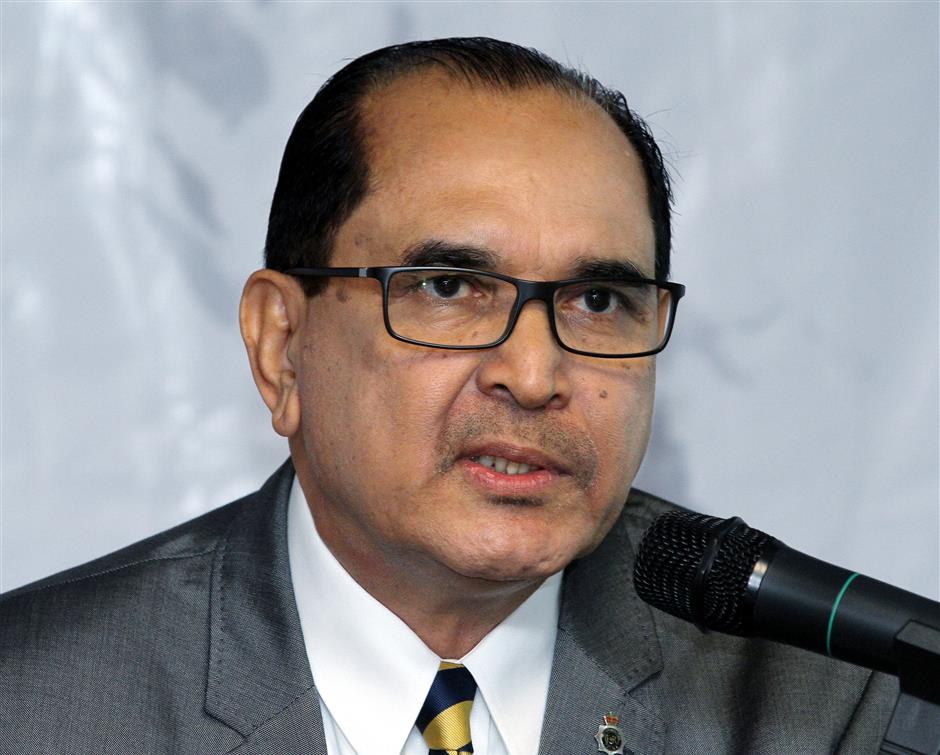2912210318.jpg)
Civil society should be institutionalized by the government

Oleh :
Datuk Seri Akhbar Satar
President
Association of Certified Fraud Examiners — Malaysia Chapter
Many of us are unaware about the Open Government Partnership (OGP) which was launched in 2011 by 8 founding governments – Brazil, Indonesia, Philippines, Norway, South Africa, United Kingdom, Mexico and United States to provide an international platform and opportunity to generate processes of cooperation between civil society organizations and governments.
Today 79 countries have already taken steps to bring civil society into the effort to improve government performance, secure concrete commitments from the governments to be more open and to foster greater transparency and accountability.
It is also aims to strengthen and improve governance, fight corruption, climate change, improve health, education, harness new technologies and other critical public services and to address old challenges of governance.
The current flood situation in the country shows there was no proper coordination between the government agencies and civil society organizations, which caused to certain extend delayed in helping the flood victims. A proper coordinated and good smart partnership between both civil society organisation and government sector would have improved the delivery system and reduced the damage caused by the disaster.
The OGP is leading by example and assisting the civil society to share best practices, bring expert knowledge to bear in government decision making. They are designed to generate ideas the provide technical assistance to support capacity and institution.
The OGP presents an opportunity as seen in the Flood Hack event by using government data to design and create a range of applications to assist with the response and relief effort to the floods which have affected many areas of the UK.
Data could be used to produce innovative public service but the main problem that there was still a reluctance by the government to press with releasing more of it.
Another scenario, Netherlands also uses big data to improve flood control and management of the entire Dutch water management system. Currently it maintains one of the most advanced and closely monitored water systems in the world. It has to, considering that more than half of the Dutch people live in areas prone to flooding, and a history of horrific flooding.
Through OGP, the Philippines used citizen feedback to manage flood control that has paralyzed parts of Manila.
Adopting the OGP would change the nature and create a more synergistic and formal relationship between government and civil society in Malaysia while allowing civil society to retain their independence. Both parties would work together to develop a national action plan, and they would partner each other to monitor the implementation too.
One of the founding principles of OGP is that no one institution, government or organization has a monopoly on good ideas or innovation. The spirit being that all of us have something to share and something to learn.
Open government is not just about allowing individual access to budget execution data; it goes beyond, it is also about ensuring the rendering of accounts by governments, monitoring, oversight and citizen’s participation, it is about establishing a permanent two-way channel for communication between governments and society.
In order to be part of this global community, they have to work in four areas namely fiscal transparency, access to information, disclosures related to elected and senior public officials, and citizen engagement. The Malaysian Government is already doing well in most of these areas except to improve the access to information. Signing up would not be an arduous task.
When the government join the partnership they must endorse the Open Government Declaration and commit to the following principles:
• Promote openness the availability of information about government activities;
• Engage citizens in decision-making;
• Implement the highest standards of professional integrity through administration;
• Increase access to new technologies for openness and accountability.
The government must be ready to arrange official meetings regularly with the civil society to encourage co creation of specific reforms, and to build trust between ministers, top civil servants to discuss reforms.
According to Datuk Wan Saiful Wan Jan, the former chief executive of the Institute for Democracy and Economic Affairs, those in government, it is really important that they pursue a healthy relationship with groups that can be their “critical friends”.
These are entities that may take an opposing view on certain government policies, but their arguments and criticisms cannot be dismissed lightly because they speak with the authority of knowledge, give reasoned critical and constructive criticism or views and are not mere rhetoric.
When Francis Maude, the former Minister for the Cabinet Office and Paymaster General discussed public service reform, transparency and a FLOOD HACK event in UK at an Open Government Partnership (OGP) meeting in Dublin, he stated the following:
“The Open Government Partnership, which I’m so proud to be a part of, is changing how countries are viewing and ‘doing’ openness. We’ve all made a meaningful commitment – backed by a tough and practical series of actions. And transparency is increasingly seen a tangible, measureable force with a direct impact on people’s lives.
I’ve said it before and I’ll say it again: transparency is an idea whose time has come.”
The Malaysian government engagement with the civil society should be institutionalized and more formal organization by joining OGP, renewed strategy, right-based approach to ensure all our country programs governance in a consistent and coherent manner. This will benefit those who matter the most-the rakyat.
Disclaimer : This article is the opinion of the author and does not necessarily reflect the official position of the MACC



